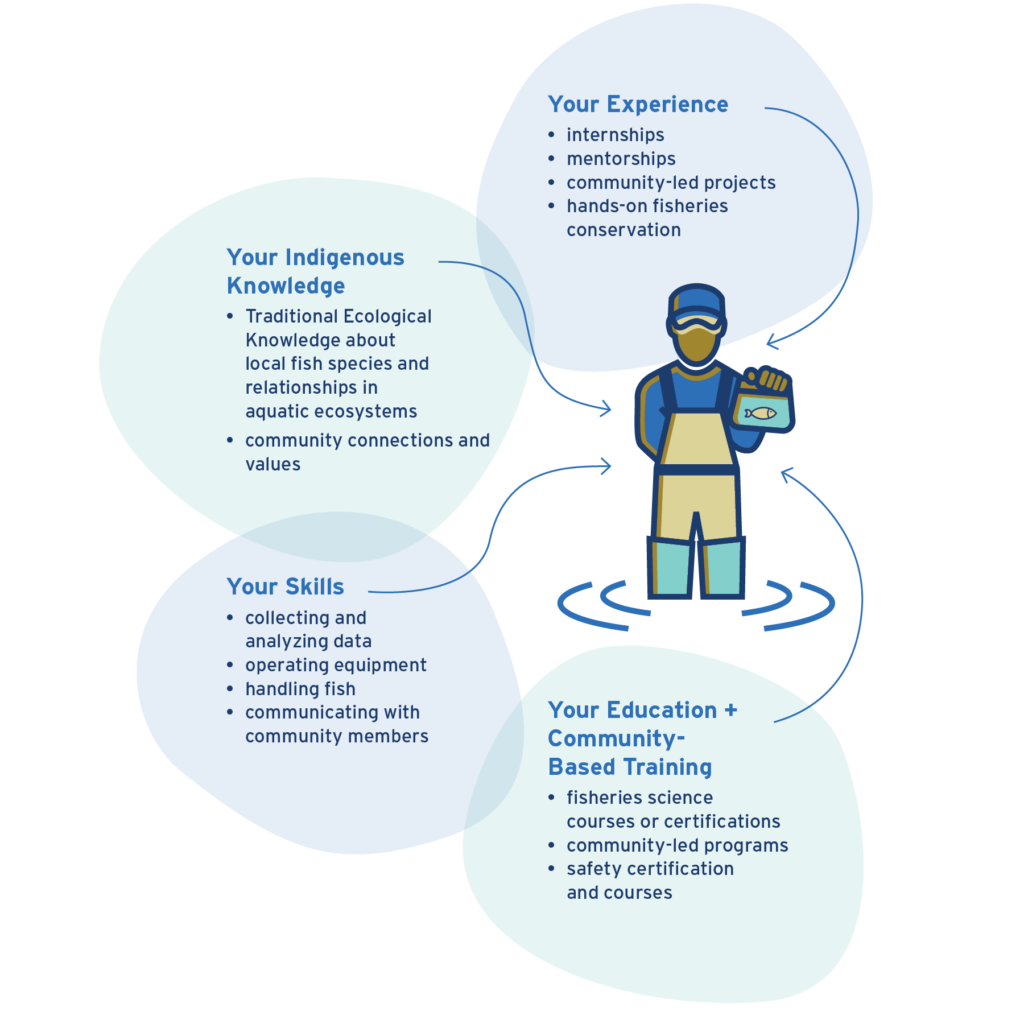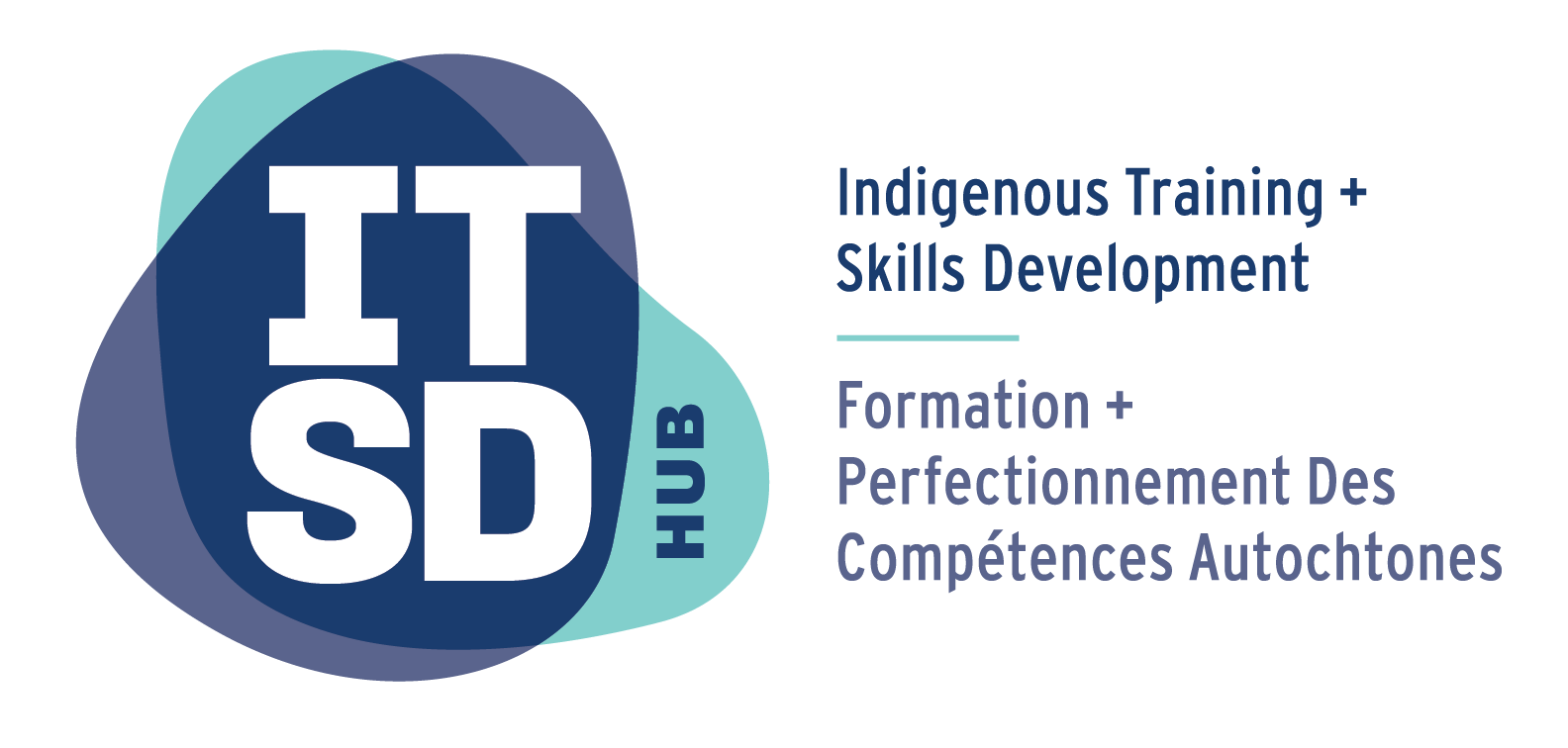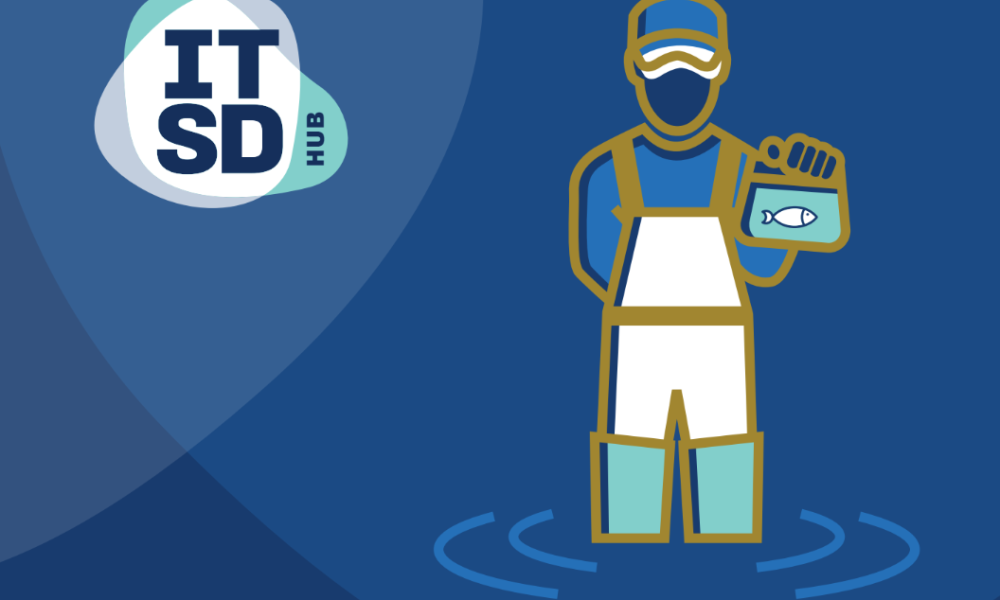Are you passionate about preserving aquatic ecosystems and ensuring sustainable fisheries management within your community? A career as a fisheries technician might be for you! What is a fisheries technician?
What is a fisheries technician?
A fisheries technician manages and conserves aquatic resources. This work encompasses data collection, habitat restoration, and community education—all aimed at preserving these vital resources for current and future generations.
A fisheries technician:
- monitors the health and sustainability of local fisheries, which are often integral to the cultural and economic well-being of a community, and
- works closely with community members, Elders, and leaders to implement Traditional Ecological Knowledge, alongside modern scientific practices to ensure the responsible harvesting of fish and other aquatic species.
Bringing together the pieces for your career
Building your ideal career is a dynamic process that may be non-linear; there isn’t a single path or way to do it.
Instead, it’s a personal journey, where you get to bring together the pieces, such as:
- your Indigenous Knowledge and connection to culture,
- skills,
- experience, and
- education and community-based training.

These pieces are as unique as you are. Your life experiences, personal connections, and core beliefs shape the pieces and how you assemble them.
Indigenous Knowledge
Passed down through generations within your community, Indigenous Knowledge is at the heart of fisheries careers.
Indigenous Knowledge:
- encompasses Traditional Ecological Knowledge (TEK) about local fish species, their behaviour, and the intricate relationships within specific aquatic ecosystems, and
- is deeply connected to engaging with Elders and community members, further enriching your understanding of and strengthening the bond between tradition, conservation, and community values.
Skills
Skills reflect the practical abilities and expertise that you bring to your role as a fisheries technician within your Indigenous community.
Skills for this role include the following:
- proficiency in data collection and analysis
- operation of specialized equipment
- fish handling techniques
- effective communication with community members
Experience
Experience can include practical experience and hands-on work experience that you gain within your community.
Experience can include any of the following:
- internships
- mentorships
- community-led projects
- on-the-ground involvement in fisheries conservation
Through practical experience, you refine your technical skills and deepen your understanding of the connections between your community, the environment, and the sustainable stewardship of aquatic resources.
Education and community-based training
Education and training include both formal learning and community-based development needed for your career. Education and training may include the following:
- completing relevant courses
- obtaining certifications in fisheries science, and
- participating in community-led training programs.
These components help you build on your knowledge to thrive in your position, while upholding and respecting the values and traditions of your community.
As part of your education and training, you should complete the following safety certifications and courses to keep you safe and confident in your fisheries technician role. We have provided links to training organizations who offer these courses for further information.
First Aid Course
- Wilderness First Responder: Rescuers who specialize in decision-making, evacuation, and transport in a remote or wilderness setting. Suitable for those who work in remote emergency services, remote worksites etc.
Health and Safety Courses
- Bear Awareness: The primary purpose of this training is to increase your awareness and understanding of bears, their behaviour, and how to reduce the risk of negative bear encounters. Bear awareness training is a type of education that focuses on the behaviours and habits of bears, how to identify signs of their presence, and how to minimise the risks of hostile encounters.
- Workplace Hazardous Materials Information System (WHMIS): WHMIS is a comprehensive system for providing health and safety information on hazardous products intended for use, handling, or storage in Canadian workplaces.
- Chainsaw Safety: Chainsaws are one of the most effective tools used to harvest trees and remove barriers. Using a chainsaw can be dangerous so it is crucial that you know how to maintain one and use it properly to avoid damaging the equipment or causing injury to yourself or others.
- Global Positioning System (GPS) Training: Having the ability to identify where you are and communicate with rescue personnel is an important part of keeping yourself safe in the field. The aim of this course is to introduce the principles of the Global Positioning System and to demonstrate its application to various aspects of Earth Sciences.
- Workplace Violence and Harassment: Fisheries technicians may face violence and harassment from coworkers or the public. Not only must employers, supervisors and workers be able to recognize these unwanted behaviours but they also must know their duties and responsibilities with respect to workplace violence and workplace harassment under the Occupational Health and Safety Regulations.
Water Specific Courses
- Small Vessel Operator Proficiency (SVOP): This is a Transport Canada approved online course for small vessel captains and crew.
- Restricted Operator Certificate – Maritime (Radio): The ROC-M course teaches emergency radio procedures and every day operating techniques.
- Swift Water Rescue Level 1: Swiftwater Safety Rescue Technician Level 1 course is designed for those that are required to be next to the water’s edge and in a low risk river environment.
Charting your career path as a fisheries technician
Remember, education and career development is a lifelong journey!
Each piece of the journey will be unique to you, just as your experiences, connections, and values are unique to you.
Your Indigenous Knowledge informs your skills and is complemented by your training and education. Your practical experiences link theory and applications, allowing you to refine and deepen your expertise.
By bringing together these pieces, you can build a meaningful career as fisheries technician. You can also continue to build on your experience as a fisheries technician to move into other roles in your career.



